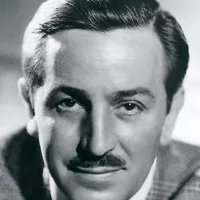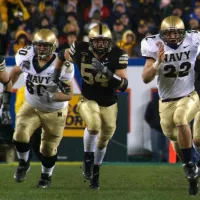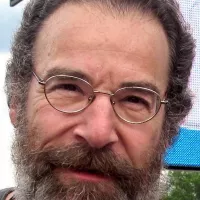The Associated Press (AP) is a non-profit American news agency established in 1846 and headquartered in New York City. It functions as a cooperative, providing news reports to its members, including major U.S. newspapers and broadcasters. The AP has received 59 Pulitzer Prizes since 1917. It's also known for the AP Stylebook, AP polls for NCAA sports, sponsoring NFL awards, and providing election polls and results.
1914: Adoption of Teletype
In 1914, the Associated Press adopted teletype for its New York service, enhancing its communication capabilities.
1917: Pulitzer Prizes Awarded
In 1917, the Pulitzer Prizes were established, and since then, the Associated Press has earned 59 Pulitzer Prizes, with 36 specifically for photography.
1925: Kent Cooper's Leadership
In 1925, Kent Cooper began his leadership of the Associated Press, serving until 1948 and expanding the bureau staff in South America, Europe, and the Middle East after World War II.
1927: Lobbying at the League of Nations
In 1927, under Kent Cooper, the AP lobbied for the renegotiation of the tripartite contract binding the agencies and their respective news markets at the League of Nations, aiming for a more important role in competition with Reuters and Havas.
1935: Launch of Wirephoto Network
In 1935, the Associated Press launched the Wirephoto network, enabling the transmission of news photographs over leased private telephone lines on the same day they were taken, providing a major advantage over other news media.
1936: Creation of College Football Rankings
In 1936, the Associated Press created its college football rankings, establishing a significant metric for evaluating college football teams.
1941: Entry into Broadcast Field
In 1941, the Associated Press entered the broadcast field by distributing news to radio stations, marking its expansion into a new media format.
1944: Photo Exchange via Stockholm
From 1944, the AP, to speed up the interchange, conducted photo exchanges with Nazi Germany via its bureau in Stockholm, under Eddie Shanke, using the Swedish agency Pressens Bild [sv] as an intermediary.
1945: Supreme Court Ruling on Antitrust Violation
In 1945, the Supreme Court of the United States ruled in Associated Press v. United States that the AP had violated the Sherman Antitrust Act by restricting member newspapers from selling news to non-members and hindering non-member newspapers from joining the AP.
1948: End of Kent Cooper's Leadership
In 1948, Kent Cooper's leadership of the Associated Press ended, after significantly expanding the bureau staff and international presence of the AP.
1949: Inaugural College Basketball Poll
In 1949, the Associated Press initiated its first poll of college basketball teams, establishing a key benchmark for national attention.
1953: First Publicly Available Edition
The first publicly available edition of the AP Stylebook was published in 1953, making it accessible to a wider audience.
1959: Establishment of Manager of the Year Award
In 1959, the Associated Press began its Major League Baseball Manager of the Year Award, recognizing one manager in each league.
1960: Poll Reduced to 10 Teams
During the 1960-61 college basketball season, the AP's poll was reduced from 20 to 10 teams, altering the scope of recognition.
1968: Poll Returns to 20 Teams
In the 1968-69 season, the AP college basketball poll expanded again to include 20 teams, restoring broader coverage.
1969: Final Poll Released After Bowl Games
Since 1969, the final AP college football poll of each season has been released after all bowl games have been played, reflecting the outcomes of the entire season.
1974: Creation of Radio Network
In 1974, the Associated Press established its own radio network, further solidifying its presence in the broadcast media.
August 1977: Publication of First Modern Edition
The first modern edition of the AP Stylebook was published in August 1977 by Lorenz Press, marking a significant update and revision of the guide.
1984: Award Given to One Manager in MLB
From 1984 to 2000, the AP's Manager of the Year Award was given to only one manager across all of Major League Baseball.
1989: Poll Expands to 25 Teams
Beginning in the 1989-90 season, the AP college basketball poll expanded to include 25 teams, further widening the scope of recognition.
1989: Top 25 Teams Included
In 1989, the Associated Press college football rankings expanded to include the top 25 teams, providing broader recognition.
1994: Christopher Newton joins the AP
In 1994, Christopher Newton joined the AP as a reporter.
1994: Foundation of APTV
In 1994, London-based Associated Press Television (APTV) was founded to provide agency news material to television broadcasters, expanding AP's reach into television media.
1994: Tina Susman kidnapped in Somalia
In 1994, while reporting for the AP in Somalia, Tina Susman was kidnapped by Somali rebels in Mogadishu and held for 20 days. She was reporting on U.S. peacekeeping troops leaving the country.
1998: Merger to Form APTN
In 1998, APTV merged with Worldwide Television News to create APTN, providing video content to international broadcasters and websites.
1998: Purchase of WTN
In 1998, the Associated Press purchased Worldwide Television News (WTN) from ABC News, Nine Network Australia, and ITN London, further enhancing its video news capabilities.
September 29, 2000: AP publishes mislabeled photograph during Second Intifada
On September 29, 2000, the first day of the Second Intifada, the AP published a photograph of an injured Jewish student, Tuvia Grossman, mislabeling him as a Palestinian and the location as the Temple Mount when it was not. The AP caption was subsequently published in major American newspapers, including the New York Times.
2000: Christopher Newton begins fabricating sources
Since 2000, Christopher Newton, an AP reporter, began fabricating sources including at least 40 people and organizations.
2000: Last Award Given to One Manager in MLB
The year 2000 marks the last year that the AP's Manager of the Year Award was given to only one manager across all of Major League Baseball.
2001: Discontinuation of the Award
In 2001, the Associated Press discontinued its Major League Baseball Manager of the Year Award, ending the recognition program.
September 2002: AP reporter Christopher Newton fired for fabricating sources
In September 2002, Christopher Newton, an AP reporter, was fired after being accused of fabricating sources since 2000. He fabricated at least 40 people and organizations, including "Education Alliance" and the "Institute for Crime and Punishment in Chicago."
2003: Launch of Live Video News Service
In 2003, the Associated Press was the first news agency to launch a live video news service, pioneering a new format for real-time news delivery.
2004: Headquarters Relocation
In 2004, the Associated Press moved its headquarters from 50 Rockefeller Plaza to 450 West 33rd Street in Manhattan, changing its physical location.
April 2006: AP photo taken by Mannie Garcia
In April 2006, Mannie Garcia took a picture for the AP which was later used as the basis for Shepard Fairey's "Obama Hope" artwork.
2007: Revenue Diversification
By 2007, the Associated Press was generating only about 30% of its revenue from United States newspapers, indicating a diversification in its revenue streams.
2007: Google Pays for AP Content
In 2007, Google announced that it would pay to receive AP content for display in Google News, reflecting the value of AP's news coverage.
2007: FBI agent impersonates AP journalist
In 2007, an FBI agent working in Seattle impersonated an AP journalist and infected the computer of a 15-year-old suspect with malicious surveillance software.
January 2008: AP sues All Headline News
In January 2008, the AP sued All Headline News (AHN) for copyright infringement and allegedly copying facts from AP news reports without permission. The case has been dismissed and both parties settled.
June 2008: AP sends DMCA take-down demands to blogs
In June 2008, the AP sent numerous DMCA take-down demands and threatened legal action against several blogs, claiming copyright violations for linking to AP material and using headlines and short summaries.
2008: Israel/Gaza conflict aftermath
In 2008, Israeli journalist Matti Friedman accused the AP of killing a story he wrote about the "war of words" between Israel and its critics in human rights organizations in the aftermath of the Israel/Gaza conflict of 2008–09.
2008: Obama Hope artwork
In 2008, Shepard Fairey created the "Obama Hope" artwork based on an April 2006 AP photo by Mannie Garcia.
March 2009: AP counter-sues Shepard Fairey over Obama image
In March 2009, the AP counter-sued artist Shepard Fairey over his image of Barack Obama, claiming copyright violation.
2009: Interruption of Google Deal
In late 2009, Google's agreement to display AP content in Google News was interrupted due to a licensing dispute, affecting the availability of AP content on the platform.
2010: Resumption of Google Deal
In mid-2010, the licensing dispute between AP and Google was resolved, and AP content resumed being displayed in Google News.
January 2011: AP and Shepard Fairey settle lawsuit
In January 2011, the AP and Shepard Fairey settled the lawsuit over the Obama image, agreeing to share reproduction rights and profits.
May 7, 2012: AP story about CIA operation
On May 7, 2012, the AP published a story about a CIA operation that prevented a terrorist plot to detonate an explosive device on a commercial flight. The U.S. Justice Department was conducting a criminal investigation into this story.
April 23, 2013: AP's Twitter account hacked, causing stock market flash crash
On April 23, 2013, hackers posted a tweet to AP's Twitter account about fictional attacks on the White House, falsely claiming that President Obama had been injured. This hoax caused a flash crash on the American stock markets.
May 13, 2013: DOJ subpoenaed telephone records for AP reporters
On May 13, 2013, the AP announced that telephone records for 20 of their reporters during a two-month period in 2012 had been subpoenaed by the U.S. Justice Department. The AP described these acts as a "massive and unprecedented intrusion" into news-gathering operations.
September 2016: Justice Department report on FBI impersonation incident
In September 2016, a report by the Justice Department on the 2007 FBI impersonation incident was released, which the AP said "effectively condone[d] the FBI's impersonation".
2016: Video Output in 2016
As of 2016, the Associated Press publishes 70,000 videos and 6,000 hours of live video per year, showcasing its substantial video production capacity.
2016: Release of All-Time Top 25
In 2016, the Associated Press released its all-time Top 25 college football teams, celebrating historical performance.
December 2017: Judge rules in favor of AP in lawsuit against FBI
In December 2017, a judge ruled in favor of the AP in a lawsuit against the FBI for fraudulently impersonating a member of the news media in conjunction with the 2007 case.
2017: Number One Spots Achieved
As of 2017, 22 different college football programs had finished in the number one spot of the AP poll since its inception, illustrating competitive diversity.
2017: Attention to AP-Nazi Deal
In 2017, German historian Norman Domeier brought to wider attention the deal between the Associated Press and the Nazi government concerning the exchange of press photos during World War II, sparking controversy.
2017: Engagement on Facebook
In 2017, a study by NewsWhip revealed that Associated Press content received more engagement on Facebook than content from any individual English-language publisher, showing a significant reach on social media.
2017: Top 100 Teams of All Time
In 2017, the Associated Press released a list of the Top 100 college basketball teams of all time, ranking teams based on poll appearances and number one rankings.
2018: Introduction of AP VoteCast
In 2018, the Associated Press introduced a new system called AP VoteCast, developed in collaboration with NORC at the University of Chicago, to enhance the reliability of its data and address biases in legacy exit polls.
2019: Global Presence in 2019
By 2019, the AP had more than 240 bureaus globally, highlighting its extensive reach in news gathering and distribution.
May 2020: AP wins Pulitzer Prize for Feature Photography
In May 2020, Dar Yasin, Mukhtar Khan, and Channi Anand of the AP were honored with the 2020 Pulitzer Prize for Feature Photography. The choice caused controversy, because it was taken by some as questioning "India's legitimacy over Kashmir".
May 2021: AP reviews social media policies after journalist firing
In May 2021, the AP announced it would launch a review of its social media policies after questions were raised about the firing of a journalist who expressed pro-Palestinian views on social media. The announcement came after some AP journalists signed a letter expressing concern over the termination of former news associate Emily Wilder, whom the AP said committed multiple violations of the company's social media policy.
2021: Israeli army destroys al-Jalaa Highrise
During the 2021 Israel–Palestine crisis, the Israeli army destroyed the al-Jalaa Highrise, a building housing the AP's Gaza offices and Al Jazeera offices. In May 2021, AP CEO Gary Pruitt stated that he "had no indication Hamas was in the building" and called on the Israeli government to provide the evidence.
January 10, 2022: AP announces NFT sales
On January 10, 2022, the AP announced it would start selling non-fungible tokens (NFTs) of their photographs in partnership with Xooa.
April 2022: Appointment of Gracia C. Martore
Since April 2022, Gracia C. Martore, former president and CEO of Tegna, Inc., has served as the chairperson of the Associated Press's board of directors.
2022: Russia's invasion of Ukraine
In 2022, Russia invaded Ukraine, which was documented in 20 Days in Mariupol.
February 2024: Families of Nova music festival massacre victims sue AP and Reuters
On 28 February 2024, the families of Shani Louk and four other Nova music festival massacre victims filed a civil lawsuit in the Jerusalem District Court against the AP and Reuters, seeking NIS 25 million ($6.5 million) in damages. The lawsuit alleged that certain photographers were embedded with Hamas and were complicit with the crimes committed.
March 2024: Gannett and McClatchy reduce AP Services
In March 2024, Gannett, the largest U.S. newspaper publisher, announced it would discontinue using content from the AP effective March 25, 2024. Newspaper chain McClatchy also announced it would stop using some AP services, though both would continue to use AP's election results data.
March 25, 2024: Gannett stops using AP content
On March 25, 2024, Gannett, the largest U.S. newspaper publisher, officially stopped using content from the AP, following an announcement earlier in March.
May 2024: Israeli officials seize AP equipment broadcasting from Gaza
In May 2024, Israeli officials seized equipment broadcasting a live stream of Northern Gaza from the town of Sderot as part of a ban on Al Jazeera Media in Israel, which had received footage from the broadcast. The move was condemned by multiple journalism organizations, Israeli opposition politicians, and US government officials, and the equipment was later returned to the AP.
June 2024: Launching of Nonprofit
In June 2024, Axios reported that the Associated Press would be launching a nonprofit organization with the goal of expanding state and local news coverage, with plans to raise $100 million.
December 2024: Lawsuit against AP rejected in US court
In December 2024, a lawsuit against the AP, filed in the United States District Court for the Southern District of Florida and citing alleged violations of anti-terrorism legislation, was rejected.
2024: Revenue from Newspapers Declines
By 2024, revenue from United States newspapers had declined to 10% of the AP's total revenue, with 37% coming from global broadcast customers, 15% from online ventures, and 18% from international newspapers and photography.
2024: AP wins Oscar for 20 Days in Mariupol
In 2024, the AP won an Oscar for 20 Days in Mariupol, a first-person account of the early days of Russia's invasion of Ukraine in 2022.
2024: AP wins "Team Picture Story of the Year" prize
In 2024, the AP's team of photographers won the "Team Picture Story of the Year" prize at the 2024 Pictures of the Year International competition. The winning image was featured as the first in a series of 20 photographs from the war and showed the body of German-Israeli Shani Louk being paraded in the streets of Gaza City by Hamas militants during the October 7 Hamas-led attack on Israel.
February 2025: Restrictions Imposed by Trump Administration
In February 2025, during the second Trump administration, restrictions preventing AP reporting in the U.S. were imposed. Two AP reporters were barred from White House events for refusing to refer to the Gulf of Mexico as the 'Gulf of America'.
February 21, 2025: AP Sues Trump Administration
On February 21, 2025, the Associated Press sued the Trump administration in Associated Press v. Budowich for blocking their attendance at White House events, marking a legal challenge to the restrictions imposed.
February 24, 2025: Federal Judge Declines Immediate Order
On February 24, 2025, a federal judge declined to issue an immediate order compelling the White House to reinstate access to presidential events for the Associated Press, though he encouraged the White House to do so. The White House asserted that providing access to the President is a privilege, not a right.
April 8, 2025: Judge Orders Lifting of Access Restrictions
On April 8, 2025, Judge Trevor McFadden ruled that the White House must lift the access restrictions they placed on the AP while the AP v. Budowich lawsuit proceeds, marking a victory for the AP in their legal challenge.
Mentioned in this timeline

Basketball is a team sport played on a rectangular court...
Facebook is a social media and networking service created in...

Google LLC is a multinational technology company specializing in online...

Walter Elias Disney was a highly influential American animator film...

The White House located at Pennsylvania Avenue NW in Washington...

College football is a popular amateur sport in the United...
Trending

Jeremiah O'Connell is a renowned American actor celebrated for his diverse roles in film and television His career spans from...

The Miracle on Ice was an unexpected victory by the United States men's ice hockey team over the heavily favored...
8 months ago Chiefs Dominate 2025 NFL Schedule with Seven Prime-Time Games

Mandel Mandy Bruce Patinkin is a versatile American actor and singer recognized for his work in musical theatre television and...

8 months ago Trump's White House Rose Garden Paving Sparks Controversy After Melania's Redesign; Bulldozing Begins.
2 months ago Hall High School in West Hartford went into secure mode; no weapon found.
Popular

Thomas Douglas Homan is an American law enforcement officer who...

William Franklin Graham III commonly known as Franklin Graham is...

XXXTentacion born Jahseh Dwayne Ricardo Onfroy was a controversial yet...

Jupiter is the fifth and largest planet from the Sun...

Instagram is a photo and video-sharing social networking service owned...

KFC or Kentucky Fried Chicken is an American fast-food chain...